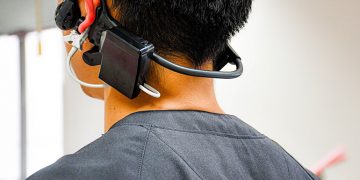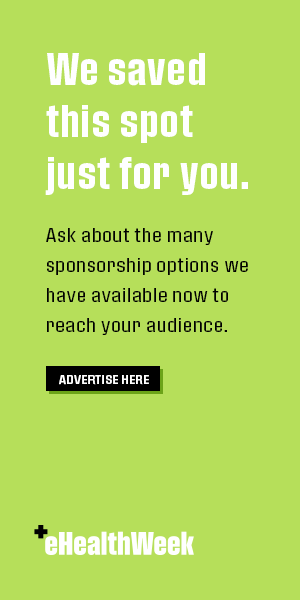Many plans for school reopenings involve a mix of online and in-person instruction, which could have huge downstream effects for kids and their parents. Staff writer Helen Lewis joins hosts Katherine Wells and James Hamblin on the podcast Social Distance from London to discuss.
Subscribe to Social Distance on Apple Podcasts, Spotify, or another podcast platform to receive new episodes as soon as they’re published.
What follows is an edited and condensed transcript of their conversation.
Katherine Wells: What is the situation when schools in the U.K.? Is it similar to what we’re experiencing here in the U.S.?
Helen Lewis: It is. It’s complicated because actually the four nations of the United Kingdom have all handled it slightly differently, but the basic premise is that some schools have gone back in dribs and drabs with some year groups in order to try and maintain social distancing. The new plan is for everybody to go back for the fall term, and the idea is that you will just associate with the other children that are in your year group in so-called bubbles. My friend Laura McInerney, who is an education journalist, points out there’s one massive trouble with this—which is that quite a lot of children have siblings. [Laughs.] The idea is that if there are more than two COVID-19 infections in the school, then the whole school closes.
James Hamblin: Oh man, so they’re going to close the schools right away.
Lewis: In a way, I think that’s almost worse for working parents, because if you know that school’s off, then you have to make child-care arrangements full time. That’s really hard to do, but you can kind of budget for it. But at the moment, it’s, “Yeah, we’re going back to school.” Except, at any moment, that might be taken away.
Wells: There are the effects on kids themselves: the lost education, the lost socialization, and everything else. But can you talk a little bit about the second order effects on everybody else?
Lewis: Yeah, I think this is kind of loon policymaking that has happened in the U.S. and Rachel Donadio has written about it in France where they’ve gone, hooray, it’s time to reopen the economy. And that’s great but what am I supposed to do with my kids is what a huge number of working parents have asked. There hasn’t been an acknowledgment that schools too are child care. They are what allows workers to get to work just as much as having a functioning transport system does. I think it’s been really tough on parents, particularly of really young children, for the last couple of months and it doesn’t look like that situation is getting any better.
Wells: It seems relatively obvious that not having schools open and also having jobs open is not a tenable situation. Why isn’t [opening up schools] part of the plan?
Lewis: One of things I always think when I write about feminism is the fact that tradition makes you think that things are natural and immutable when they’re actually the result of political choices that people have made. I think our current frame is a legacy of a very 1950s model where the man is the breadwinner and then the wife’s job is sort of secondary if she’s got one at all. That’s not the reality for the vast majority of people now.
Wells: And all of that is just completely compounded in a pandemic.
Lewis: Right. People rely on families and friends and informal networks for child care and lockdown just completely took that away. Never mind losing your six hours a day of formal nursery care, you also couldn’t get your mum to come and pick the kids up so that you could go to an important meeting.
Hamblin: These are problems that have been with us for decades. Now we have a crisis on top of this and we need solutions now. So what should we do?
Lewis: I know that to American ears this is almost like calling for full communism now, but it should be the state’s responsibility to provide affordable child care and to pay for maternity and paternity leave. America has no federally mandated maternity leave and some people are cobbling together bits of holiday allowance, right? And pumping breast milk in the toilets at work six weeks after their baby’s born. There’s a social good to children being happy and healthy and to parents being not stressed. I think that’s really tough for people to get their heads around, initially. Occasionally I have a little spark of god, I must be paying a lot of tax money for schools that I’m not using. But then I remember that all those kids are going to grow up and do things, brilliant things hopefully, that will benefit my life forever.
Hamblin: It’s a nice idea. Does it work anywhere?
Lewis: The Nordic countries are where everybody points to and if you look on the World Economic Forum website, the best places to be a child are those Scandinavian countries—Norway, Sweden, Finland, and Denmark. All of them do have very generous entitlements to affordable child care. It does require a level of state spending that I think is really difficult to comprehend in the American context.
Wells: So what should we do? What is the way we can think about it to make it make sense for us?
Lewis: Well, I’m going to give you the really bad news. We’ve had 50 years of the argument for universal child care being at the forefront of feminist thinking and policy making and we’re still nowhere near that goal. And I think it’s one of those things will probably stay in the realm of aspiration, to be honest, because of the level of investment required. But as with all politics, it’s about making the argument that this actually makes economic sense.
The U.K. actually has low productivity compared to other countries and I wonder if some of it isn’t about the fact that people arrive to work quite stressed and frazzled because they’ve still got porridge in their hair and they had to do the school pick up on the way. I think there’s a cold economic argument to be made here.
Wells: You wrote about the idea of an exposure budget. Could you talk about that?
Lewis: It’s the idea that if you’ve only got a certain amount of risk to spend why aren’t schools the first thing you spend it on? Why are we out there opening bars? Why would that be something that you would prioritize before schools? There’s this thing called the summer-holiday effect where kids from low-income families fall behind their wealthier peers during the summer holidays. The kids in the wealthy families have books at home and they’ve got a good, stable internet connection— and all of the other things that middle-class and upper-middle-class families have access to. If we keep schools closed I think we’re going to see huge educational inequalities opening up.
Wells: Given your knowledge about the history of feminism, are you optimistic or pessimistic that this pandemic could cause a shift in how we think about child care?
Lewis: One hundred and fifty years ago, women couldn’t go to university in Britain. One hundred years ago, they didn’t have the vote. Fifty years ago, they didn’t have equal pay. There have been significant victories, so I don’t ever discount the role of campaigning to change policies and minds and attitudes. But my worry here is that everything else is also competing for attention. There will be a big move to say, it’s really hard for big businesses now—that they need to be able to cut red tape, which is usually a euphemism for employment protections, because that’s the only way that they’re going to survive. That really worries me. But the one thing that does give me hope is that lots of people’s eyes have been opened up. There have been lots of viral clips of people being interrupted on TV by their kid coming into the room. I think there will be maybe some dads who will have a livelier appreciation of what it’s like to spend all day at home with a three-year-old and some employers who will have had to think about new ways of working, including more flexible and remote working. So, I’m ambivalent. As ever.














